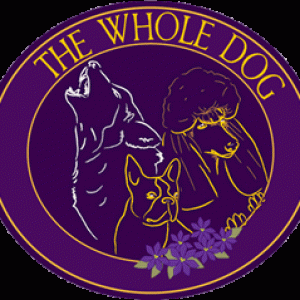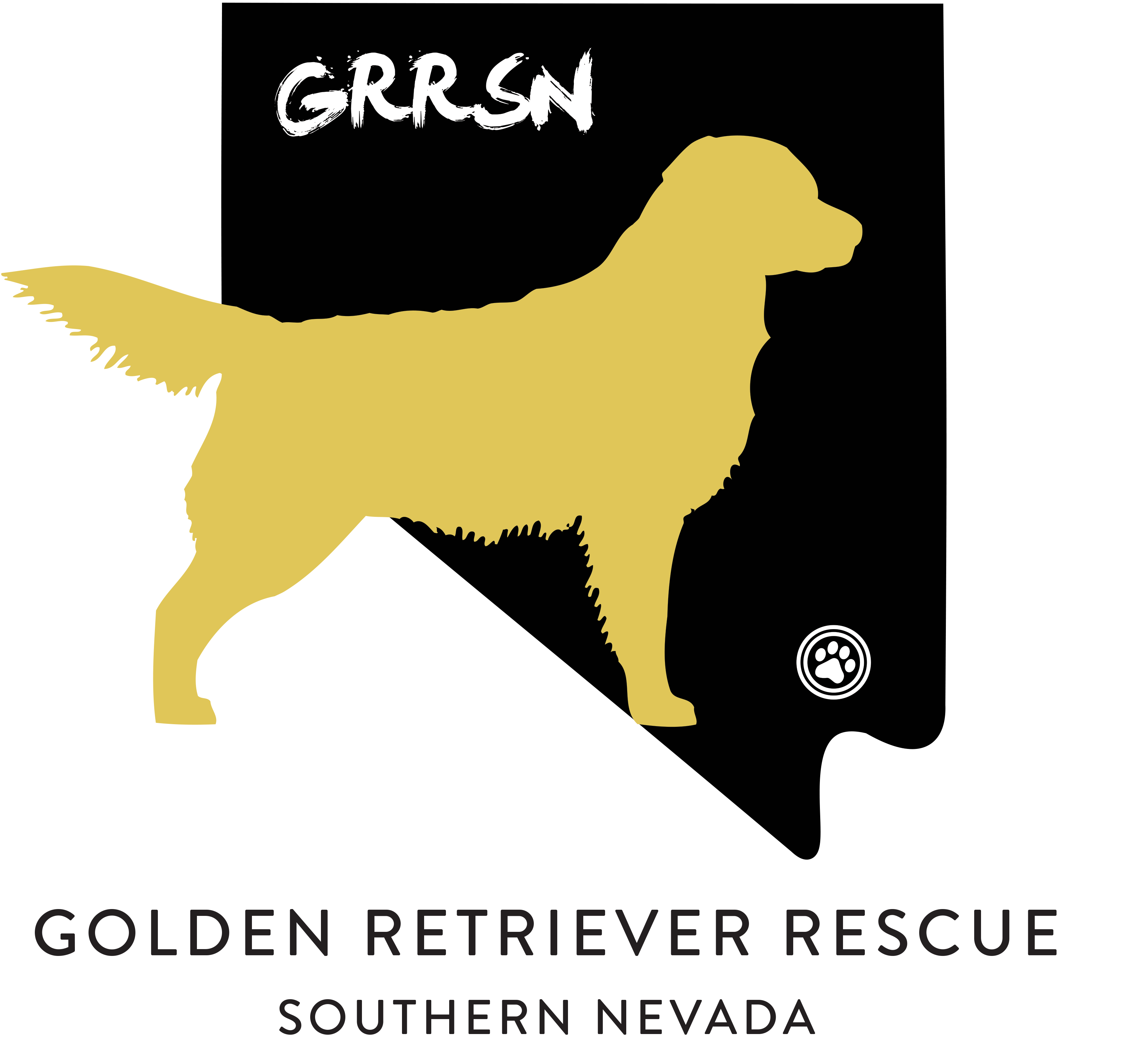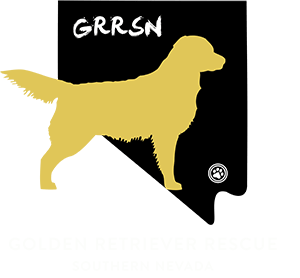Kidney Disease In Dogs

Kidney Disease In Dogs
By Dr. Jeanette (Jeannie) Thomason
The kidneys are like a filter, they will filter freely for a long time and clog very slowly. If the kidneys are not cleaned out periodically though, they will eventually clog causing urinary tract problems and eventually kidney failure. The solution is to clean or keep the kidneys cleaned out so this filter can flow freely. Once the filter flows freely the body is able to function properly.
Disease will not happen is a clean body or a body with a strong, properly functioning immune system. It is vital to keep the body clean as this WILL prevent disease. So, if the kidneys are kept clean and unclogged, does it not only make sense that your pet can not get kidney disease?
I hear on a regular basis that “My pet is not sick so I don’t need to do that.” If I can share one bit of wisdom to empower you, it is that, you need to PREVENT diseases, NOT wait till you see symptoms. Clean the body, build and maintain a healthy immune system.
Chronic Renal Failure or Kidney Disease/Failure in our pets, is being more frequently diagnosed then ever before in history.
Most animals do not even show signs of kidney failure until about 70% – 75% of their kidney function has already been lost. In order to diagnose CRF/CIN and determine the extent of the disease, a blood test and urinalysis is needed.
When a pet has been diagnosed with Kidney disease or renal failure, people generally tell me “My vet said there’s nothing he can do – just make Spotty more comfortable and try to prolong his life as much as possible. Lets keep him on antibiotics and this special “Kidney Diet Kibble”
Okay; and your vet has only mainstream training, right? So this is my first, and very strong, recommendation: Find a veterinary naturopath or TRUE holistic veterinarian who knows something (preferably a lot) about natural healing!
Now, let’s take a look at the kidneys…
First it is important to understand a little about the kidneys and what they do.
The kidneys filter water, glucose, salts, and nitrogenous wastes (including urea and uric acid) filtered from the bloodstream (proteins being filtered out). This mechanism is dependent upon and extraordinary amount of pressure. Consequently, increases or decreases in blood pressure affect the flow of urine. Urine itself is a concentrate of the liquid that passes into the kidneys� most of its constituents are returned to the bloodstream, some are retained and others manufactured as wastes (e.g., ammonia).
You have to have an idea as to what is wrong, so you can get some other clues! And, possibly, help your pet’s health practitioner/provider. You are in charge of your pet’s healing in a very real way.
“Kidney disease or kidney failure” might mean compromised, over-worked kidneys – or it might mean damaged kidneys (i.e., severe, chronic renal failure).
Kidneys can be damaged – by a whole slew of environmental poisons, tainted grains in processed pet foods and veterinary treatment drugs, and via other disease forces as well (such as kidney infections, diabetes, leptospirosis, cancer, as examples). And some say that kidney problems can be inherited (especially by certain breeds).
In severe renal failure, hemodialysis or peritoneal dialysis may be recommended, More commonly at this stage, you or your Veterinarian have to inject fluids into your dog (usually just under the skin at the scruff of the neck or possibly through a vein) to keep them going.
Kidney failure or renal disease symptoms are – increased thirst, dehydration, loss of appetite, urination changes, maybe nausea and pain. It is quite common lately in elderly pets – systems do fail as we get older, whoever we are. But the kidneys job are one of the critical factors in eliminating toxins from the body – and they become less efficient with age, and with toxin loading. So first, consider what you’re loading the animal’s body with!
…Like fresh – unpolluted – water. Water is acknowledged by all as being extremely important for kidney patients. But most vets will just say, “Give plenty of fresh water.” People, fresh chemical-contaminated water might keep your pet from dying right now, but it definitely isn’t healing. Purify it as you would for yourself!
Keep in mind that anything overtaxing the liver and kidneys is being (especially) detrimental to your pet’s health at this time.
Diet
Let’s face it, chemicals in processed pet food (like preservatives, coloring agents and artificial flavoring agents) and in the environment (contaminated water, air and soil) are directly stressful to the kidneys and surely play a role in the development of kidney disease. In addition, lack of adequate exercise and diminished exposure to natural environments only compound the problem of inadequate elimination and a sluggish metabolism.
Diet appears to be about 90% of the problem when dealing with kidney dysfunction as most dry foods contain low quality ingredients contributing to this disease.
Exercise of some kind is important to keep all the body’s systems functioning. If your dog is in later stages of disease or can really no longer walk on its own (briskly and long enough to get the heart rate up preferably), see if it will hold still for being bounced gently on a trampoline (this is very good for flushing the circulatory systems) or, second best, rocking in a rocking chair.
The skin, actually, the largest eliminative organ, also is linked to kidney troubles. It has been found that long-term skin irritation and eruption often seem to precede eventual kidney failure in old age. If the skin disorder is repeatedly suppressed with doses of cortisone or other related corticosteroid drugs, the relationship seems especially true. This is a good reason to rely on a natural healing modality like proper nutrition, herbs or homeopathy for skin disorders!
Food and drink are so basic… And let’s face it, commercial pet food has all kinds of garbage in it and is cooked at such high temperatures that any nutrition they may have been in there at all; has been destroyed/killed! Here’s an article that will help explain why commercial kibble may not be as healthy or nutritious as we have all been lead to believe: What’s Really In Pet Food?”
From a “natural/holistic” approach, it is very important to feed an ALL Natural Diet (home-prepared meals) of cooked or much better yet, raw meats. Almost any type of artificial foods that come in a bag or can are full of chemicals/toxins or as mentioned above, have been cooked at high temperatures and will only continue to burden the kidneys and add more toxins in the body. With more damage the toxins that are normally filtered by the kidney begin to build up and can actually cause mental depression, decreased appetite, a foul odor to the breath, oral ulceration, and vomiting. In the end stage of renal failure, a low body temperature, seizures, and severe depression and coma can result.
Diet is frequently discussed as a form of treatment and as a possible cause in renal diseases and even failure in dogs and cats.
Most conventional, western medicine veterinarians will recommend a low protein diet
It is true that the poor quality cooked protein in commercial diest is converted to BUN by the liver. …. But our carnivore companions do need their protein, …. so, feed high quality fresh protein foods, which are available if you buy the human grade meat . i.e. human grade chicken and turkey (Not canned or store bought dog kibble).
Everyone has heard the words: Too much protein! Kidney damage!
Well, guess what? The very early research that pointed a finger at protein as being a cause of kidney failure in dogs wasn’t even done on dogs! It was done on rats fed unnatural diets for a rodent… diets high in protein. (Were we tinkering with nature during these tests?) Rats have difficulty excreting excess protein in their diets because they are essentially plant eaters, not meat eaters.
Dogs are quite able to tolerate diets with protein levels higher than 30% on a dry weight basis. Dogs are meat eaters; that’s how Nature made them! Rats are not. So some of the early research on rats was assumed to be true for dogs… and the myth of “too much protein in a dog’s diet causes kidney damage” was started. And just like any seemingly valid rumor or assertion, it derived a life of its own and is only recently being accepted as untrue. Here is just one of many references that recently have appeared asserting the lack of data indicating that reducing the protein level in a food helps to protect the kidneys… Kirk’s Veterinary Therapy XIII, Small Animal Practice, page 861, written by Finco, Brown, Barsanti and Bartges “…restriction of protein intake does not alter the development of renal lesions nor does it preserve renal function. Considering these (research) findings, the authors do not recommend reduction of dietary protein in dogs with renal disease or reduced renal function in order to achieve renoprotective effects.”
Do protein diets or even “high” protein diets causes renal failure? No.
In dogs, studies have been done where they have removed 7/8 of the renal mass and then placed them on diets of various protein level and quality. Dietary protein had no effect on the development of renal failure. In cats similar studies suggest that dietary protein level is not associated with renal failure.
Dr. Hamilton’s opinion is that… ‘diets that are low in potassium can cause renal failure.’ In general Commercial diets are of poor quality protein and poorly formulated and may have led to the development of renal disease.
During developing renal insufficiency the phosphate content of the diet may be important. High phosphate levels may lead to worsening renal failure. Many diets today, especially for cats, are artificially acidified to help reduce the risk of FUS (or FLUTD as it is now known) However, this may in reality actually cause increased loss of potassium in the urine and promote potassium depletion. Currently these problems (high phosphate and acidification) are being investigated in cats to see how important they are to the development of renal failure. But we do suspect that this is the major cause of early kidney disease in animals today.
Dogs with kidney problems by Dr. Lucy Pinkston, D.V.M.
“Because by-products of protein digestion are the main toxins that need to be excreted by the kidneys, an obvious assumption might be that all one needs to do is to cut out the protein and the kidneys wouldn’t have any more hard work to do. . . . There is significant evidence, however, that the daily protein requirements actually increase slightly for dogs in chronic renal failure. Therefore, severely restricting the protein for such a dog is likely to result in protein malnutrition, in spite of the fact that the levels of blood urea nitrogen, or BUN (the primary by-product of protein metabolism) would be correspondingly lower.” This article contains a great deal more useful information in easy to read format. www.speedyvet.com/speedyvet/library.asp?page=20
Dry food is is never a good option for animals with kidney problems, Maintaining hydration is extremely important for animals with kidney disease.
Supplements
COQ10
Some Veterinarians suggest one milligram of CoQ10 daily per pound of body weight. There is good research behind this that shows it can help bring down the creatinine levels.
www.illnessisoptional.com/absolutenm/anmviewer.asp?a=32&z=14
CoQ10 was studied in a small pilot study involving 21 patients with chronic renal failure. Researchers administered CoQ10 to 11 of the subjects while 10 received a placebo capsule. To be included in the study patients had to have a creatinine level of 5 mg/dl or above. After 4 weeks, the subjects receiving CoQ10 had significant decreases in serum creatinine and urea while creatinine clearance significantly increased. At the end of the 4 week study the number of patients on dialysis was significantly less in the CoQ10 group. 36.2% of the patients in the CoQ10 group were on dialysis at the end of the study while 90.0% of the placebo group was on dialysis at the end of the study.
www.annieappleseedproject.org/coqbenforenr.html
Conclusions: Treatment with co enzyme Q10 reduces serum creatinine and blood urea nitrogen and increases creatinine clearance and urine output in patients with chronic renal failure.
In Renal Failure, potassium can not be absorbed efficiently in the presence of a magnesium deficiency probably at least partly because the body cells can not absorb potassium [Ryan, p100] (or at this site) and magnesium tends to be correlated with potassium intake.
The thing to worry about with kidney disease is too much phosphorus. There is a lot of phosphorus in bone. So continue feeding good quality raw (or even cooked)proteins, but go low (very low) on bone or bone meal use.
* Magnesium is vital to enzyme activity. It assists in calcium and potassium uptake. A deficiency interferes with the transmission of nerve and muscle impulses, causing irritability and nervousness.
– Supplementing the diet with magnesium helps prevent things like – depression, dizziness, muscle weakness, twitching, heart disease, and high blood pressure, also aids in maintaining the proper pH balance – which can be a common occurrence in kidney patience.
If you can, buy the combined tablets called – Chelated Magnesium and Calcium tablets.
*Crush tabs when adding to meals. (if unavailable in combination, then buy single chelated Mag tabs and single chelated Calcium tabs. and combined in your dogs food.
*Special note might be made of the usefulness of essential fatty acid supplementation of Omega 3s (e.g., fish oils). Even mainstream vets are spreading the word a bit about the efficacy of EFAs in supporting the kidneys.
The best and most easily digested and assimilated source of omega3 fatty acids for our pets is Salmon Oil.
Flax seed oil is not broken down and used as well. See article HERE
Brown, S. A., C. A. Brown, W. A. Crowell, J. A. Barsanti, T. Allen, C. Cowell, and D. R. Finco. “Beneficial effects of chronic administration of dietary omega-3 polyunsaturated fatty acids in dogs with renal insufficiency.” J Clin Lab Med 131:447-455 (1998). www.ralstonpurina.com/breeders/magazine.asp?article=434
In two studies, one from 2000 and the other from 1998, dogs with induced kidney disease showed improvement when they were fed omega-3-rich fish oil supplements, compared to omega-6-rich safflower oil supplements. Results from this model of renal insufficiency in dogs suggest a beneficial effect of fish oil in protecting the kidney, whereas safflower oil hastened the decline of kidney function.
Both Chinese and Western herbs can be useful in the beginning stages of kidney disease.
Renal Essentials for Dogs or for Cats Contains herbs, amino acids and vitamins and minerals to help maintain optimal kidney function, balance urine pH and mineral levels, normalize circulation, and strengthen the immune response to foreign material in the urinary tract and kidneys.
Only Natural Pet Kidney / Urinary Support Herbal Remedy is another good herbal complex that soothes and protects the entire urinary tract and stimulates the kidneys to eliminate passive congestion.
It is always a good idea to consult with a veterinary naturopath or TRUE holistic veterinarian before starting your dog or cat on any new herb or supplement when your pet is dealing with kidney disease.
You can also use fresh finely chopped or pulverized fresh, organically grown parsley leaves and fresh, un treated/un-sprayed dandelion leaves in small amounts, to help flush toxins from kidneys daily.
Since the liver and kidneys are a such a team in de-contaminating the bloodstream, I would certainly think in terms of detoxifying and giving support to the liver as well. Dandelion root and milk thistle are the most readily-available and commonly used liver cleansers, for both people and pets. Here is our list of a few recommended natural/herbal detox formulas that help cleanse and support the kidneys and liver.
Diet
While most adult dogs are best fed only one meal a day, in the case of kidney disease it has been recommended to feed four SMALL MEAL daily. Kidneys will cope better if less there is less to process each time.
“It is also good to provide a low sodium diet (Keep in mind that most commercial dog foods tend to have quite a bit of sodium in them) to decrease hypertension which may be damaging the kidneys and low phosphorous since it appears that phosphorous may actually be a major cause of damage in deteriorating kidneys.” Dr. Mike’s” online question-and-answer page with a bunch of discussions on kidney-related issues
And a final word on food: In case of just about any illness, I would strongly suggest using digestive enzymes & probiotics (canine or feline version) for better nutrient assimilation. Powder sprinkled on or mixed into the food is better than a swallowed capsule, if your pet will eat the food (both probiotics and enzymes are pretty tasteless). For more information on Probiotics check out this article Probiotics,What Are They? Do Our Dogs NEED Them?
I would also see if the dog will take freeze-dried chlorella or other “green food” powder on its food. (I occasionally sprinkle a little bit of chlorella or a mixture of spirulina and Barley Green over my dogs’ food, and they like it a lot.) Green foods (another is blue-green algae) are very detoxifying to the blood – which means less work for the kidneys. (Enzymes Pro and Power Boost both have green food in them)
For a fantastic “all-in-one” supplement containing most of the above mentioned elements in a totally non-synthetic form, click HERE
Acupuncture
Acupuncture can be very helpful for animals with kidney disease. Regular acupuncture will actually help slow the progression of the disease, stimulate the kidneys and boost the overall vitality of a dog or cat. Many acupuncturists will typically include vitamin B12 injections with the acupuncture and/or sometimes a homeopathic treatment.
(And yes, in case you were wondering…. They do perform kidney transplants on cats and dogs these days.)
In kidney disease, the kidneys themselves as well as the nephrons (functional units of the kidney) have a very restricted ability to regenerate. This means that most damage done to the kidneys is not reversable. What is important is to help the functioning nephrons perform at an optimal level. Most of the time, pet owners are hoping that their pets kidney function will miraculously improve ”while it is possible to see improvement in kidney values” what is most likely to occur is an actual decline in the rate of kidney deterioriation. In other words, if your dog’s creatinine level has jumped from 2.4 to 3.4 in a few weeks, treatments may help to only slightly lower or keep the value from rapidly rising to 4.4 in the following week. Usually, you will not see a drastic improvement of lower values or normal values although in some rare cases they will drop significantly with time on the natural diet and life style changes made for the dog.
The goal of consultation suggestions is to help the pet to live as close to a normal life as possible, given the kidney disease diagnoses. Since the kidneys do not always heal or regenerate new and functioning tissue, the natural, home prepared diet and supplements can help the healthy nephrons handle the additional burden. Even with kidney failure, you can likely prolong and enhance your pet’s life by being proactive and common-sensical.
While I try to be very informative in my articles, they are general in nature. I therefore encourage you to have a consultation to work with me on tailoring a program specifically for your own dog’s needs. This is particularly imperative in pets with complicated health issues, or if you’ve done a lot of outside reading and have conflicting information
The successful management of canine kidney disease requires careful food choices balancing your dog’s appetite and food preferences with a low phosphorous diet. I (Dr. Jeannie) do NOT advocate the use of prescription kidney formula diets—these diets are formulated with poor quality, low protein content that I believe this only taxs the kidneys more as well as effecting the digestive system and pancreas to add to the dog’s illness. I believe a fresh homemade diet is far superior. However, a homemade diet must be balanced and flexible to support your dog’s overall health.
Dr Jeannie has special expertise with dogs with kidney disease and can help you with a species appropriate low phosphorous diet that your dog will eat.
* Click HERE to schedule a consultation before you begin any health care program with your dog
A consultation includes a personalized diet and holistic program suggestions that are custom-tailored to your own dog’s individual and personal needs.
.
Copyright 2003 -2010 This article is the sole property of Dr Jeanette (Jeannie) Thomason and The Whole Dog. It cannot be reproduced in any form whatsoever without the expressed written consent of the author.
This article was revised 5/19/10
Dr. Jeannie Thomason
Certified Veterinary Naturopath, Animal Nutritionist & Natural Animal Health Coach
The Whole Dog
Promoting And Providing Natural Dog Care Through A Practical Understanding.




